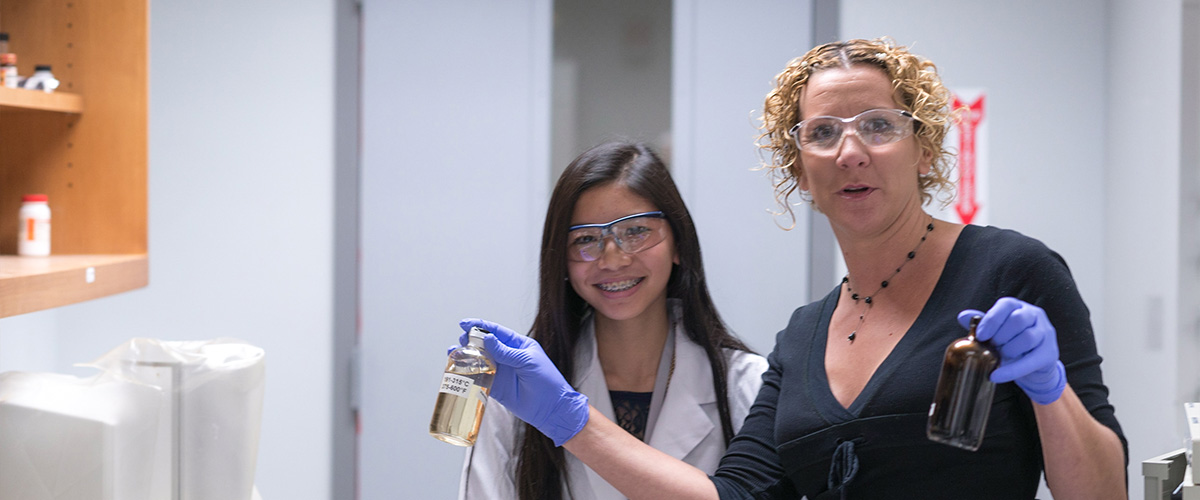As a headstrong teenager, I refused to accept "that some people just are not good at math," as my parents would say.

Amy McKenna in the lab's Ion Cyclotron Resonance Facility.
I always enjoyed school, but I struggled with math, even in elementary school. I tried really hard and did my best, but never quite excelled at math as I did at other subjects. As a headstrong teenager, I refused to accept "that some people just are not good at math," as my parents would say. Academic rock bottom came in high school when I got a D in algebra. I was furious at myself and directed my anger at my terrible algebra teacher. I blamed him for my inability to excel, refusing to believe that the same studying approach that earned me As in other courses was insufficient for math. I scraped through math in high school, barely above average.
When my father died after my freshman year of college, it took me six years to find my way back to school. At 25, I wanted a worthwhile degree that was going to mean something and be a challenge. I fell in love with chemistry because it was methodical, logical and followed a defined sequence. I liked that it was based on data rather than opinion. When I saw the courses required for a degree in chemistry, I knew I needed to tackle upper-level math: not just complete the courses, but actually understand the material. I went to the first day of calculus with a resolve that I would understand the material and enjoy it.
It worked! The biggest surprise was that I actually enjoyed it. I remember going home from my bartending job on Friday nights, excited about working on differential equations. Now that I had a handle on the math fundamentals, I could focus on chemistry. Analytical chemistry found me. My first professor at the University of Tampa took me under his wing and told me, "You will go to graduate school." I was married by then with a baby boy to take care of, and had not even considered an advanced degree. But my husband pushed me to apply to schools and we settled on Florida State University.
In retrospect, I am amazed to be a Ph.D. in analytical chemistry. After eight years of study – all while raising three children – it seems like a huge mountain I have climbed. But I never looked at the big picture while I was going through it. I focused on the immediate future, telling myself, "Just get through this semester, then you can quit if you still want to." I soon realized it wasn't so hard, after all. It was no longer work; it was what I wanted to be doing.
By AMY MCKENNA, Ph.D., Ion Cyclotron Resonance Facility



